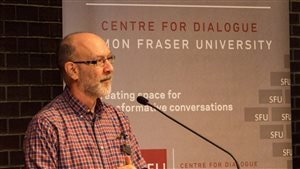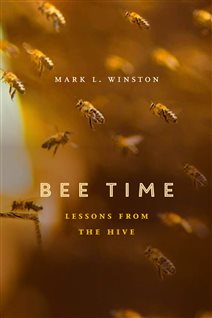Around the world people are becoming increasingly concerned about bees. Without the pollination efforts of bees there would be virtually no crops, and massive starvation would result.
But there is a lot more to bees than pollination and honey.
Mark Winston says we can learn a lot from bees, and his new book is all about the many aspects of bees. It’s called “Bee Time: Lessons from the Hive”. He is a Professor of Biological Sciences and also Senior Fellow at the Centre for Dialogue at Simon Fraser University in the west coast province British Columbia
Listen
The concern is that bees are dying off in high and worrisome numbers, due to combined effects of such things as climate change, and crop spraying of pesticides, and insecticide coats seeds.
Professor Winston points draws parallels between the agricultural practices harming bees and how that is beginning to harm us as well.
He also notes how bees communicate with each other and work together to maintain the health and functioning of the community and the hive which is their “home”, just one of many lessons we can learn from the hive.

He notes that urban planners are studying bees in efforts to create more nature friendly cities.
Through the stories in the book Professor Winston investigates the various influences bees have had on human society throughout millenia.
Bees have influenced language, from calling a loved one “honey” to expressions like “busy as a bee”, and a “hive of activity.
Being around the thousands of bees in beehives as they do their work, is awe-inspiring. Observing their ways, and how they have responded to their own societal challenges may help us adapt and emulate some of their ways to help our society.
I hope you’ll enjoy an interesting few moments with Mark Winston, author of Bee Time-Lessons from the Hive







For reasons beyond our control, and for an undetermined period of time, our comment section is now closed. However, our social networks remain open to your contributions.